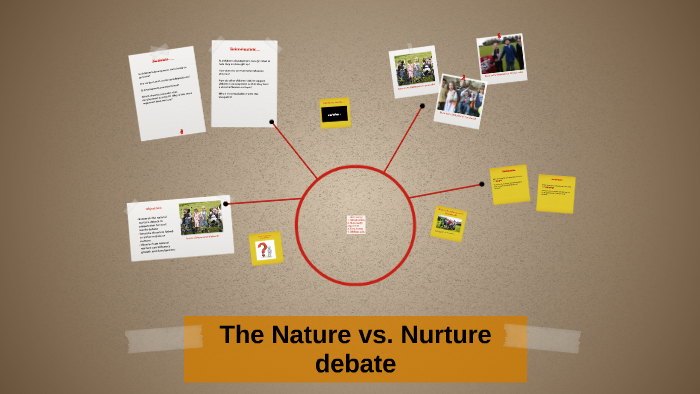The discourse surrounding the nature versus nurture debate has generated fervent discussions among scholars and laypersons alike. The interplay between genetic predispositions and environmental influences forms the crux of various academic explorations. However, when one scrutinizes this debate through the lens of cultural relativism, the arguments favoring nurture over nature emerge with compelling vigor. This exposition delineates the strongest arguments advocating for the primacy of nurture, particularly in shaping human behavior, identity, and cognitive development.
Cultural relativism posits that individual beliefs, values, and practices must be understood in their cultural context rather than through an ethnocentric lens. This paradigm allows for a nuanced appreciation of how nurture—encompassing socialization, education, and cultural rites—indelibly shapes individuals across diverse societies. This perspective is pivotal in elucidating the multifaceted nature of human behaviors and capacities.
One of the most pronounced arguments for nurture lies in the remarkable variability of cultural practices. Social customs and norms dictate behaviors that are often antithetical to biological determinism. For instance, parental practices vastly differ across societies and significantly influence children’s developmental trajectories. In collectivist cultures, the emphasis on community and familial ties fosters interdependence, while individualistic societies prioritize personal achievement. These diverging socialization methodologies highlight the profound impact of environmental contexts on human behavior, which cannot be ascribed solely to inborn traits.
Moreover, education serves as another powerful lens through which nurture asserts its preeminence. Cognitive skills, emotional intelligence, and social capabilities are largely cultivated within educational frameworks. The availability and quality of education can differ starkly from one socio-economic context to another. As a result, individuals raised in resource-poor conditions may lack access to opportunities that foster cognitive growth compared to their counterparts in affluent cultures. Studies corroborate that educational interventions can significantly alter developmental pathways, thus underscoring the transformative potential of nurture.
Another salient argument centers on the plasticity of the human brain. Neuroscientific research has illuminated the brain’s remarkable capacity for adaptation, particularly in response to environmental stimuli during critical developmental periods. The phenomenon of neuroplasticity underscores that experiences, especially during formative years, sculpt neurological pathways, thereby impacting behavior and cognitive functions. This capacity for change, in stark opposition to a static genetic framework, exemplifies how nurture can overwrite biological predispositions.
Furthermore, cultural perspective plays a pivotal role in defining identity and behaviors. The concept of identity, often viewed through a solitary lens of individualism, can be enriched by acknowledging the collective narratives that inform personal and cultural identities. Cultural narratives impart values and morals that dictate acceptable behaviors, and these narratives can significantly alter perceptions of self and others. For instance, the values imparted through collective storytelling, ritual practices, and community engagement shape identities that are at odds with a purely genetic understanding of personality and behavior. The rich tapestry of cultural influence, therefore, elucidates the profound role that nurture plays in human development.
Another argument to support the nurture perspective is found in the realm of psychological development. Attachment theory posits that the bonds formed during early childhood significantly influence emotional and social development. Variations in attachment styles—stemming from caregiver responsiveness and environmental stability—illustrate how nurturing behaviors can shape long-term psychological outcomes. Children from secure attachment backgrounds typically exhibit healthier interpersonal relationships than those from neglectful or chaotic environments. This observation suggests that emotional frameworks, critical for healthy adult functioning, are cultivated through nurturing interactions rather than genetic inheritance alone.
Moreover, societal expectations and gender roles present another intriguing facet of the nurture argument. The ascription of roles based on cultural norms demonstrates how societal teachings and expectations can dictate behavior far more than biological determinism. Studies of gender socialization reveal that boys and girls are encouraged to adopt behavioral traits that conform to cultural archetypes, leading to marked differences in expression and opportunity. Such role delineations highlight the social constructs governing behavior, inherently privileging nurture’s influence over nature.
In the context of health and wellness, nurturing environments—characterized by holistic support systems—often engender better health outcomes. Access to nutritious food, physical activity, and mental health resources can mitigate genetic predispositions toward certain health conditions. Public health initiatives that address systemic inequalities provide compelling evidence that nurturing environments can significantly influence well-being, challenging the notion of immutable genetic fate. This intersection of nurture and health exemplifies how social and environmental structures are primary determinants of individual health outcomes.
In summation, the arguments advocating for the nurturing aspect of human development are robust and multifaceted. This discourse elucidates the significance of cultural relativism in understanding behavior, identity, and health. By emphasizing the diverse influences of environment and society, the contours of nurture emerge as pivotal in shaping human experience. This perspective not only enriches our understanding of individual and collective identities but also advocates for societal shifts towards supportive environments that foster optimal human potential. In an increasingly globalized world, recognizing the interplay of nurture and culture is paramount to appreciating the complexities of human behavior and identity formation.
